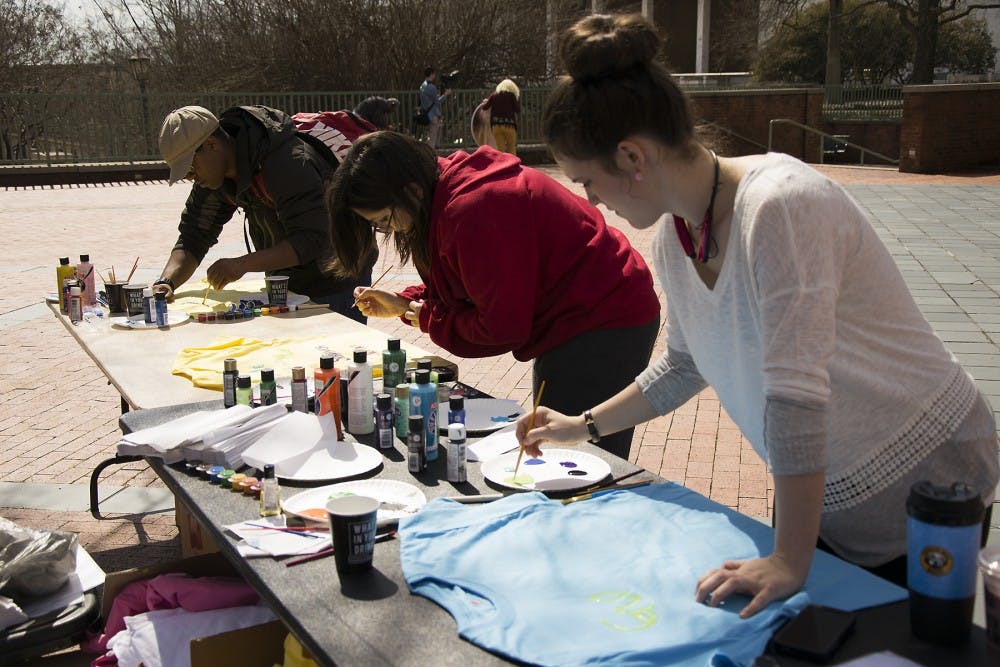Painting T-shirts may seem like just a craft project, but for USC sexual assault survivors, it's a new means of expression that helps with the healing process.
USC’s Office of Sexual Assault and Violence Intervention and Prevention (SAVIP) has kicked off March with the annual Clothesline Project, a national campaign representing men and women affected by violence and sexual assault. The event brings both survivors and non-victims together to paint shirts to help raise awareness and open a dialogue about sexual and domestic violence.
As April is Sexual Assault Awareness Month, SAVIP is hosting the preparations for Clothesline Project on the Russell House Patio from 10 a.m. to 2 p.m. on March 2, 16, 23 and 31, and April 1 and 6. The shirts will be displayed Monday April 13.
Given the recent bouts of relationship violence USC has experienced, namely with the murder-suicide in Copper Beech last November involving Diamoney Greene and Brandon Earl, and the more recent on-campus shooting of Professor Raja Fayad by his ex-wife Sunghee Kwon in February, it comes as no surprise that the SAVIP office is redoubling its efforts this year, with an emphasis on violence prevention over mere awareness.
Started in Massachusetts in 1990, the Clothesline Project was chosen by SAVIP not only to show support for survivors, but also to “emphasize the importance of consent, acknowledge accountable bystanders and raise awareness for sexual assault and violence,” according to the SAVIP website.
Kristin Tanner, an intern with the SAVIP office and graduate student in the Masters of Social Work program, said that based on the turnout Monday, she feels optimistic that this year’s Clothesline Project will take meaningful strides towards prevention and raising awareness.
“Sexual assault, relationship violence and other kinds of interpersonal violence aren’t really talked about as much as other crimes and we think they need to be,” Tanner said. “One of the goals for the Clothesline Project is to be able to raise this awareness while also supporting survivors.”
Janece Gough, a graduate assistant and fellow SAVIP organizer, runs the Clothesline Project table with Tanner and added that one of the biggest challenges they face is figuring out how to turn the difficult subject of sexual violence and crime into an interesting conversation piece.
The Clothesline Project’s ultimate goal is not just to educate people, but also to open a discussion about these issues in a relatable context that they hope will leave a longer-lasting impression.
“We’ve actually been discussing why it’s really important, especially after the tragedies that have happened recently, that relationship violence prevention be talked about more on campus,” said Tanner. “It’s something that campus has definitely started to become more aware of, and I think that it’s events like this that give us an opportunity to come together and help to provide the first step in the healing process.”

